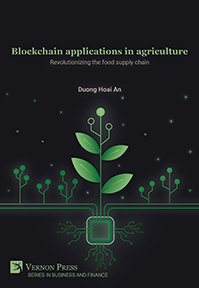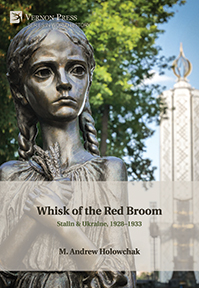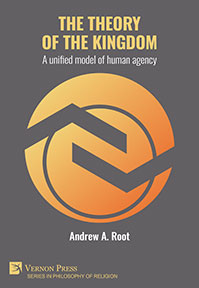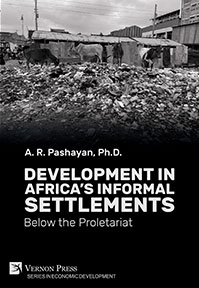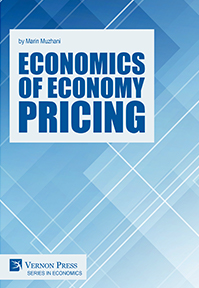Search
Browse
by Publication status
by Subject
Anthropology (26) Art (124) Business and Finance (26) Cognitive Science and Psychology (54) Communication and Journalism (45) Economics (62) Education (66) History (149) Human Geography (22) Interdisciplinary (42) Language and Linguistics (129) Law (16) Music Studies (18) Philosophy (157) Political Science and International Relations (103) Sociology (304) Statistics and Quantitative Methods (20)by Series
Series in Literary Studies (65) Series in Philosophy (59) Series in Education (51) Series in Sociology (42) Series in Politics (32) Series in World History (32) Bridging Languages and Scholarship (31) Series in Language and Linguistics (25) Cognitive Science and Psychology (20) Series in American History (20) Series in Philosophy of Religion (20) Series in Art (19) Critical Perspectives on Social Science (16) Series in Cinema and Culture (16) Curating and Interpreting Culture (15) Series in Critical Media Studies (14) Series on the History of Art (14) Series in Anthropology (13) Series in Business and Finance (13) Economics (13) Series in Music (12) Series in Communication (9) Series in Performing Arts (9) Philosophy of Personalism (8) Series in Law (8) Series in Economic Methodology (7) Series on Climate Change and Society (7) Women's Studies (7) Classics in Economics (6) Series in Economic Development (6) Philosophy of Forgiveness (5) Series in Built Environment (5) Series in Economic History (5) Series in Philosophy of Science (4) Series in Social Equality and Justice (4) Series on the History of Science (4) Serie En Estudios Literarios (3) Serie en Sociología (3) Series in Contemporary History (3) Series in Creative Writing Studies (3) Series in Design (3) The Interdisciplinary Built Environment (3) Serie en Comunicación y Medios (2) Serie en Historia (2) Series in Heritage Studies (2) Series in Innovation Studies (2) Series in Philosophy of Race (2) Serie en Ciencias Políticas (1) Serie en Entorno Construido (1) Serie en Estudios Culturales (1) Serie en Filosofía (1) Serie en Filosofía de la Ciencia (1) Serie en Música (1) Series in Classical Studies (1) Series in Economics of Technological Change (1) Series in Urban Studies (1)by Language
English Spanishby Author
Browsing with filters

Blockchain applications in agriculture: Revolutionizing the food supply chain
Duong Hoai An, Thai Nguyen University of Agriculture and Forestry, Vietnam
Availability: In stock
424pp. ¦ $84 £67 €78
'Blockchain applications in agriculture: Revolutionizing the food supply chain' is your definitive guide to the transformative impact of blockchain technology on agriculture and the modern food supply chain. In this comprehensive volume, we begin with “Introduction to blockchain technology,” laying the groundwork for readers of all backgrounds. From there, we delve into the intricate relationship between blockchain and the agriculture industry in “Overview of the agriculture industry”. The heart of the book explores practical applications in agriculture and the supply chain, including “Blockchain-based supply chain management,” “Farming and crop management,” “Livestock management and animal welfare,” and “Food safety and quality assurance.” We also explore how blockchain revolutionizes “Agricultural finance and insurance” and fosters “Sustainable agriculture and supply chain sustainability”. Drawing on “Case studies and real-world examples,” you’ll see blockchain in action, offering invaluable insights for farmers, supply chain professionals, academics, and policymakers. Our forward-looking chapter, “Future Trends and Challenges of Blockchain,” anticipates the evolving landscape of this groundbreaking technology. This book stands out for its depth, practicality, and relevance. It is equally suitable for reference, as a methodological guide, for classroom adoption, or as essential reading for researchers and practitioners in the fields of agriculture, technology, supply chain management, and policy. Whether you’re seeking to optimize farming practices, enhance supply chain transparency, or understand the regulatory implications, 'Blockchain applications in agriculture' equips you with the knowledge and inspiration needed to navigate the future of food production and distribution. Join the agricultural revolution today.
Whisk of the Red Broom: Stalin & Ukraine, 1928-1933
April 2024 / ISBN: 978-1-64889-860-0Availability: In stock
262pp. ¦ $72 £58 €67
Once Joseph Stalin took the lead of the Soviet Bolshevists after the death of Vladimir Lenin, he quickly turned away from Lenin’s New Economic Policy, with its many concessions to capitalism, to a policy of one-country socialism, driven by his first Five Year Plan (1928) and a plan that other Bolsheviks like Lenin and Trotsky thought impossible. That shift, radical, forced Stalin to “urbanize” the USSR’s vast rural areas—that is, to impose a factory-like model on the Soviet countryside to maximize its efficiency. That required collectivizing the numerous Soviet farms—making large farms of the numerous small farms. Ukraine was to be the model republic due to its vastness and black, fertile lands. Not only were the republics to be collectivized, they were also to be Russified for the sake of model efficiency and centralization of control. And so, while Stalin, early in his political life, preached respect for the cultural diversity of its many republics and the right of secession of any republic, the need to collectivize the Soviet farms for the sake of one-country socialism demanded compliance. Ukrainian peasant-farmers were non-compliant, for they readily saw that the State was asking them for everything and giving back nothing but the pledge of efficient farms to benefit the State, and non-compliance forced Stalin’s authoritarian hand. He imposed laws that brutally punished non-compliant peasants, called “kulaks.” The plan was dekulakization. The intransigents were dispossessed of their property, alienated from other villagers, exiled, and exterminated. The result in Ukraine was the gross inefficiency of both collective and individual farms. That led to intolerance of Ukrainian culture and theft of Ukrainian grain, and even all other findable foodstuffs, to punish Ukrainians. The end was a great famine in 1932 and 1933 in which some four million Ukrainians died. Did Stalin believe that he could urbanize the Soviet countryside? Did Stalin think that socialism could take root in the backwater Soviet Union without the aid of Western succor? Did Stalin hate Ukrainians because many pressed for a cultural identity separate from that of Russia? Had Stalin’s plan of dekulakization from the beginning been a policy of political genocide? Those are some of the many questions I aim to answer in this book. I focus much on Stalin’s writings in the efforts to ascertain his mindset as a dictator.
The theory of the kingdom: A unified model of human agency
October 2023 / ISBN: 978-1-64889-757-3Availability: In stock
310pp. ¦ $79 £63 €74
This original monograph presents a comprehensive theory regarding the economy of the kingdom of God. The theory and associated model will help individuals make better choices. The research integrates fundamentals of the temporal real economy, and the permanent economy of the kingdom of God, to present a unified model of human agency. According to the model, effective agents are salt and light in the real economy, arresting corruption and revealing the truth. Effective agency produces life, peace, and growth. Individual and organizational practices that arrest corruption and reveal truth can resolve longstanding economic grievances. The list of spiritual credence goods is extensive and includes commonly known virtues such as humility, patience, and hope. Spiritual goods are allocated based on the owner-agent relationship. The quantity of goods the owner supplies is in proportion to an individual’s sacrificial offering of time and money. Spiritual goods are stored as heart capital. In a process analogous to the real economy, heart labor applied to heart capital produces desirable outputs. The owner relates to his agents through a heart-inscribed behavioral contract. The owner generally intervenes in the real economy by communicating with agents rather than by restricting choice. Prior studies across economics, finance, and sociology prove the efficiency of behavioral contracts and communication over restricted choice. Herein researchers will find new testable propositions, and practitioners will find new ideas and practices to live better, more consequential lives. Examples of practical applications include methods of resolving group-level bias and understanding the purpose of life’s difficulties.
Development in Africa's Informal Settlements: Below the Proletariat
Angela R. Pashayan, American University, Washington, DC
Availability: In stock
251pp. ¦ $66 £53 €62
This book discusses the effectiveness of international development programs in African informal settlements (slums). It also represents the voices of slum dwellers and how they view the programs offered. With over 60% of Africans living in slums, the book intends to foster dialogue among development professionals to determine how to improve service to their clients, people experiencing extreme poverty. This book examines the critical thinking disconnect between development professionals and slum dwellers. It enables practitioners, professors, and their students to investigate the gap between the types of development programs offered versus what is most beneficial to reduce extreme poverty in slum communities. With a sample of 500 residents from Mukuru Slum in Nairobi, Kenya, and 100 development professionals with expertise in poverty reduction in slums, this book sheds light on the similarities and differences between various programs. Most importantly, this book provides a theoretical way forward (The Theory of Extreme Poverty Reduction) based on Freirean pedagogy to stimulate discussion on how to program new strategies for authentic dialogue with slum dwellers that leads to the critical consciousness necessary for successful poverty reduction.
Economics of Economy Pricing
Marin Muzhani, CDI College, Canada
Availability: In stock
279pp. ¦ $77 £62 €70
The economy of the industrialized countries in the 21st century has already moved to a new level of mass production and technology never seen before, thanks in part to globalization, advanced technologies, new organization management methods, and innovative supply chain. A relatively large number of mass-produced commodities (characterized as non-premium) and services in Western economies are somehow sold at discounts rather than regular prices at a much higher frequency that was never seen before. This phenomenon has completely changed how we look at the theory of the firm in microeconomics. This book is indented to introduce new ideas and theories by challenging the current modern micro-and-macro economic theories. In a globalized world, the economies of advanced countries have entered a new phase called “economy pricing,” where most of the mass commodities are sold at a low price during certain periods of the year, called ‘sales events’. In addition to low prices, most industrialized countries have had record low inflation, low-interest rates, low growth, and low unemployment rates. This book will contend how the “Economy Pricing System” is about to revolutionize how people look at a real economy’s micro and macro effects.

